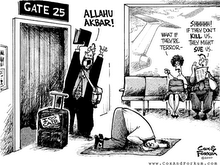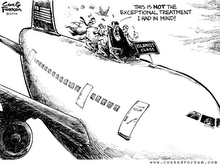The worry is back for millions of American Muslims. Describing the six suspects of the Fort Dix plot as "Islamic militants," U.S. Attorney Christopher Christie said at a news conference, "The philosophy that supports and encourages jihad around the world against Americans came to live here in New Jersey and threaten the lives of our citizens through these defendants."
merican population that can be of crucial help in the fight against terrorism.









No comments:
Post a Comment